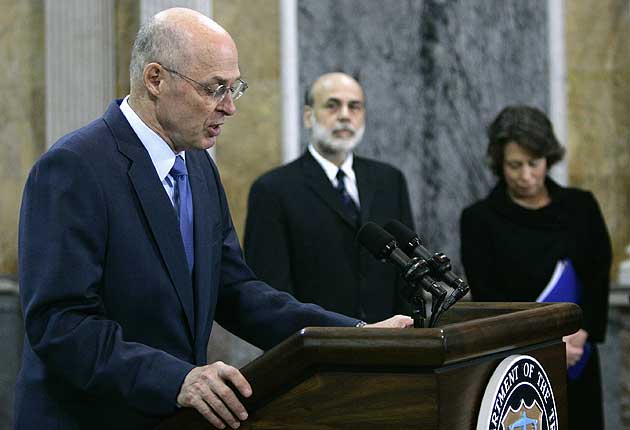Your support helps us to tell the story
From reproductive rights to climate change to Big Tech, The Independent is on the ground when the story is developing. Whether it's investigating the financials of Elon Musk's pro-Trump PAC or producing our latest documentary, 'The A Word', which shines a light on the American women fighting for reproductive rights, we know how important it is to parse out the facts from the messaging.
At such a critical moment in US history, we need reporters on the ground. Your donation allows us to keep sending journalists to speak to both sides of the story.
The Independent is trusted by Americans across the entire political spectrum. And unlike many other quality news outlets, we choose not to lock Americans out of our reporting and analysis with paywalls. We believe quality journalism should be available to everyone, paid for by those who can afford it.
Your support makes all the difference.George Bush today confirmed a $250 billion plan by the US government to buy shares directly in the nation's leading banks.
The President said the drastic steps were "not intended to take over the free market but to preserve it."
Nine major banks will participate initally including all of the country's largest institutions. Some of the big banks had to be pressured to participate in the program by Treasury Secretary Henry Paulson, who wanted healthy institutions that did not necessarily need capital from the government to go first as a way of removing any stigma that might be associated with banks getting bailouts.
Bush, in brief remarks in the Rose Garden of the White House, said the government will initially buy stocks in nine major US banks.
"These efforts are designed to directly benefit the American people by stabilizing the financial system and helping the economy recover," he said.
Paulson, at a news conference a short time later, said: "We regret having to take these actions. Today's actions are not what we ever wanted to do — but today's actions are what we must do to restore confidence to our financial system."
The Federal Reserve, meanwhile, announced Tuesday that it will begin buying massive amounts of short-term debt on 27 October — its latest effort to break through a credit clog. The Fed is invoking Depression-era emergency powers to buy commercial paper — a crucial short-term funding that many companies rely on to pay their workers and buy supplies. Last week the Fed said it intended to take the action but didn't specify when.
Fed Chairman Ben Bernanke welcomed all the new steps and said he believes they will help ease problems plaguing financial markets and threatening the economy. However, he also made clear that policymakers would continue to take actions as needed to battle the crisis.
"Our strategy will continue to evolve and be refined as we adapt to new developments and the inevitable set backs," he said. "But we will not stand down until we have achieved our goals of repairing and reforming our financial system and thereby restoring prosperity to our economy."
"The needs of our economy require that our financial institutions not take this new capital to hoard it, but to deploy it," Paulson said, meaning that they will use the money to bolster lending to each other and to their customers.
"Government owning a stake in any private US company is objectionable to most Americans — me included," Paulson added. "Yet the alternative of leaving businesses and consumers without access to financing is totally unacceptable."
Said Bernanke: "We will not stand down until we have achieved our goals of repairing and reforming our financial system and thereby restoring prosperity to our economy."

Join our commenting forum
Join thought-provoking conversations, follow other Independent readers and see their replies
0Comments